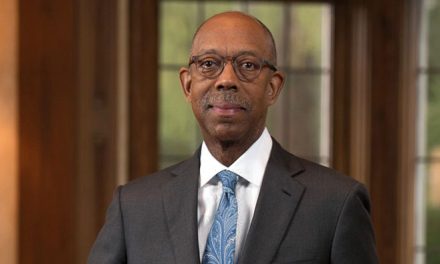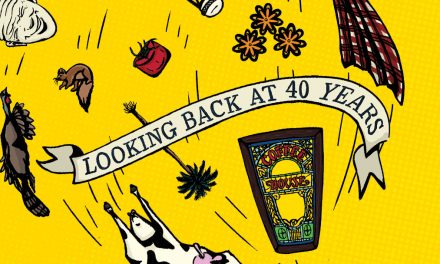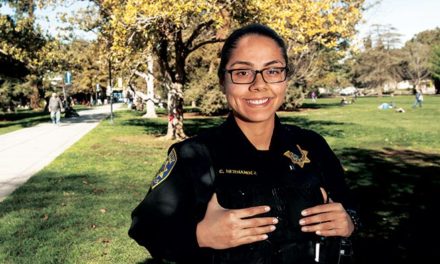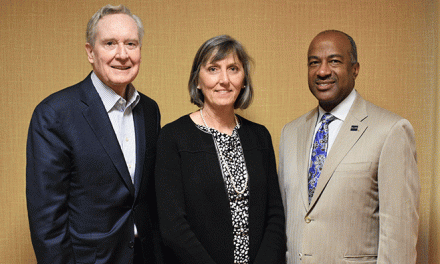Three Questions for Three New Deans
Newly appointed deans at the College of Letters and Science, School of Engineering and School of Veterinary Medicine get the lay of the land and start making plans.
UC Davis welcomed three new deans last fall — in the College of Letters and Science, School of Engineering and School of Veterinary Medicine. Each dean brings a wealth of experience to be able to take on the top job and lead their schools into the future. UC Davis Magazine sat down with them to find out more about their plans.
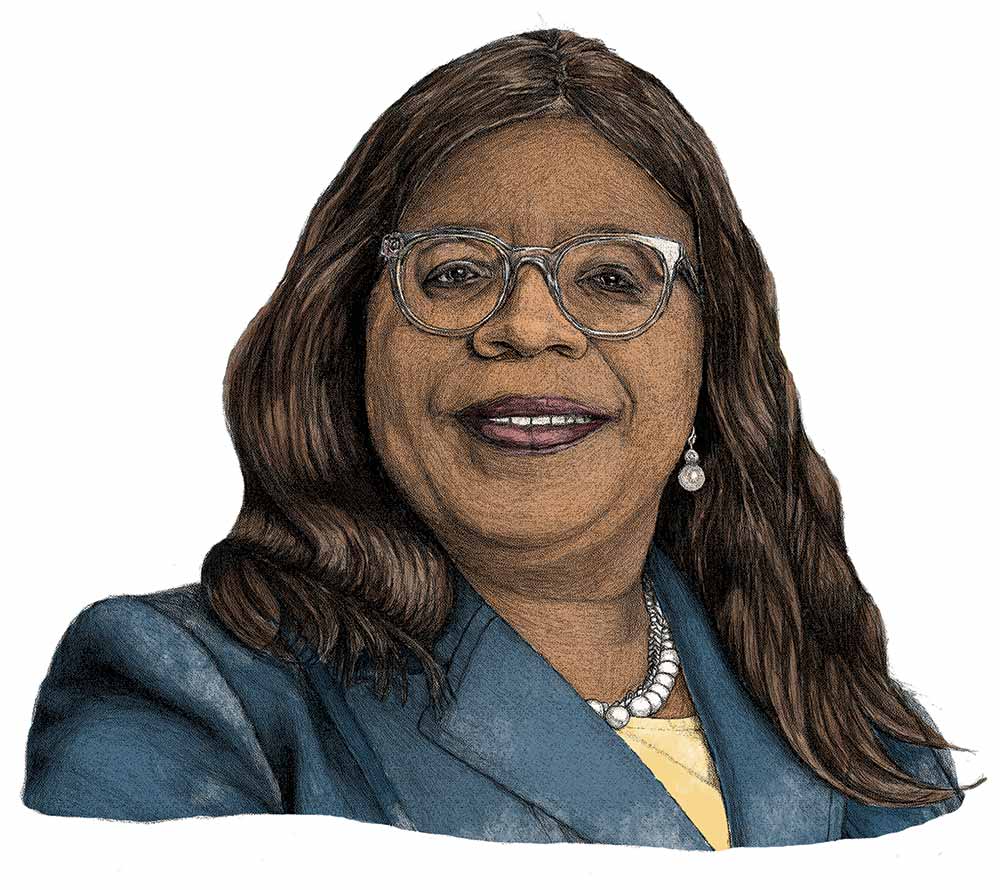
Ana Panaligan / UC Davis
Estella Atekwana
College of Letters and Science
For Dean Estella Atekwana, student success is top of mind. Since starting the position in August 2021, Atekwana announced a mentoring program that will start this fall for first-generation freshmen and new transfers to match them with current students and help them navigate their first year on campus. “The goal is to foster a sense of belonging,” she said. For graduate students, she expanded L&S’s summer fellowship program to provide additional funding so graduate students could focus on their research during the summer. Atekwana was previously dean of the College of Earth, Ocean and Environment and a geophysicist at University of Delaware.
What are your major priorities now?
No. 1 is enhancing the success of our students across all demographics. I believe that every student who walks through our doors must exit with a degree and with adaptable and flexible skills needed for careers of the future and of their choosing. And I am committed to partnering with our faculty and alumni to make this happen. For our undergraduates, it’s expanding beyond the classroom experiences — including undergraduate research, global engagement through study abroad, internships, closing opportunity gaps, career preparedness and mentoring.
No. 2 is promoting and fostering an equitable workplace and a culture of inclusive excellence in the college where our faculty and staff feel safe, valued and appreciated. Diversity and inclusion enhance innovation and productivity, and so I am committed to advancing excellence in faculty diversity by recruiting and retaining a more diverse professorate and faculty that bring multicultural perspectives to teaching and research. Our student body is very diverse. This is the most diverse college that I have ever worked in. Ideally, our faculty demographics ought to reflect the changing demographics of our students. Aligning faculty demographics with students will take deliberate and intentional action. This requires working collaboratively with the departments that hire and recruit and implementing best recruitment practices.
Last but not least, L&S has a history as three separate colleges brought back together. We need a new roadmap for the college. My highest priority as we move into 2023 is to work with faculty and all the relevant stakeholders to develop a new strategic plan for the college. I have visited most of our departments to learn of their strengths, challenges and opportunities. I believe we have excellent departments with a lot of potential, and we need to unleash that potential.
“Helping [students] succeed … is the best feeling I can get
from what I do.”
What are the challenges and opportunities facing your work now?
Right now, some of the challenges are resources. We have some funds to support the expansion of the graduate student summer fellowships. But this needs to be sustained; I don’t want it to go away after two or three years. We are looking for creative ways to generate additional revenue to support this program through development activities.
Another challenge is the disruptions we are facing in the post-pandemic world and “the great resignation.” We have several positions that are not filled right now. Plus, there is the challenge of the emotional toll and burden of what has happened. We need new strategies to support our faculty, staff and students in this post-pandemic world.
And then there are lots of opportunities to expand our research. We can promote convergence research that leverages L&S diversity in frontier areas to address society’s grand challenges. We have them all in L&S. This is the great advantage of this college.
What makes you feel fulfilled?
Knowing that I am making a difference. When a student’s life has been transformed by their experiences here or when, by removing barriers, our faculty and staff achieve their goals and unleash their potential — helping them succeed. That to me, is the best feeling I can get from what I do.
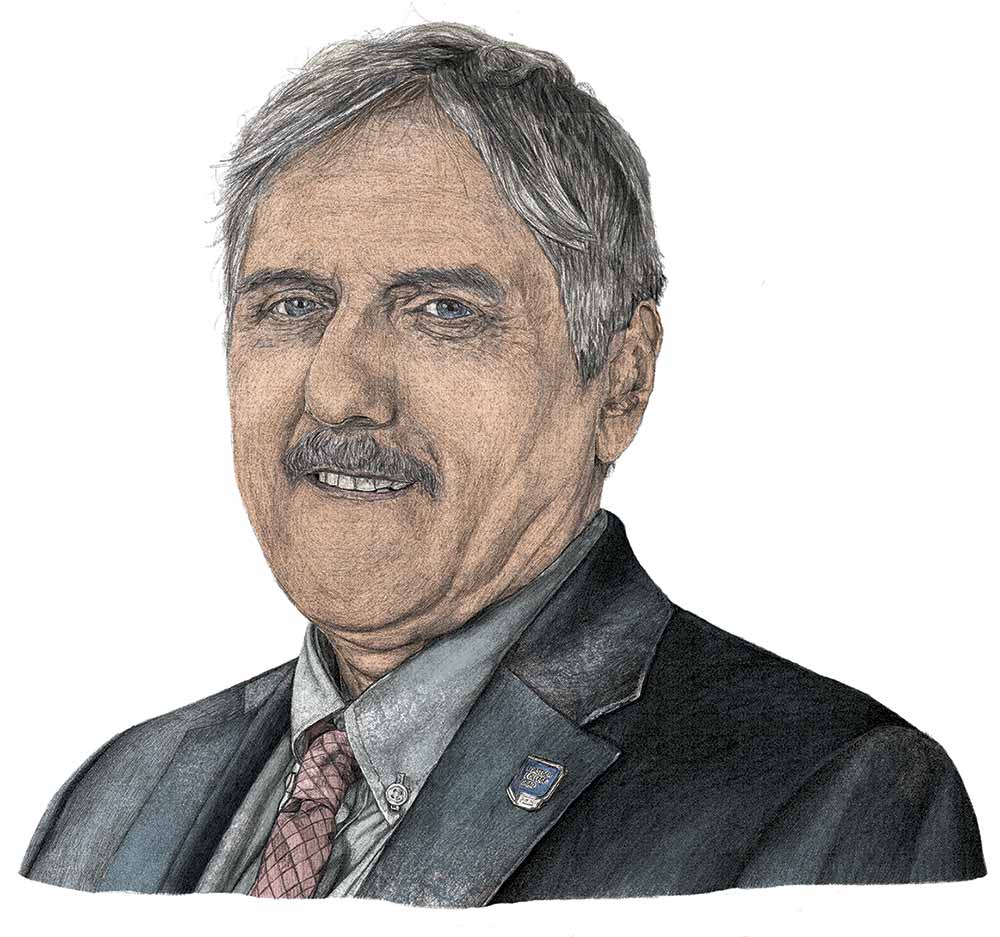
Ana Panaligan / UC Davis
Richard Corsi, M.S. ’85, Ph.D. ’89
College of Engineering
Dean Richard Corsi is focused on creating a strategic vision to advance the college. “As dean, I want to set the tone that we are going to great places and to act to make that a reality. That’s what I love doing and should do,” said Corsi, who started in September 2021. An alumnus of UC Davis, Corsi returns to campus by way of University of Texas, Austin, where he was a department chair, and more recently Portland State University, where he was dean of engineering and computer science.
How do you approach the job of dean?
The big picture is ambassador, advocate. Of course there are things that surprise you every day [with day-to-day operations]. But never lose track of the main reasons we are here: educating students, doing research that’s of relevance to society and community service. That’s something I try really hard not to lose track of. Our strategic vision must advance all of those things.
“As dean, I want to set the tone that we are going to great places and to act to make that a reality.”
What are your major priorities right now?
I want to set a five- to seven-year vision for the college that our community will rally behind, and then go generate revenue to invest in that vision, to make it a reality. We’ve started that process and it’s something I’m proud of. It will include three major pillars: a strategic research vision, strategic education vision and strategic community vision.
We have completed our strategic research vision, which includes four impact areas: Transforming Mobility, Advancing Human Health, Strengthening Climate Resilience, and Revolutionizing Energy Systems. Now we are going to invest in those four areas to not just sustain but to grow our stature as leaders in each.
We have a strategic education vision that is probably three-quarters done. We’ve included students, faculty, staff, alumni and our dean’s executive committee in the development process. An important question that we are addressing is “how do we inspire an engineering student from the first steps they take on this campus to their last steps walking across stage at graduation?”
The final pillar is our strategic community vision, which we’ve just started and will continue through the fall. That one is focused on our internal community and how we become an extraordinary, inclusive ecosystem steeped in engagement, empowerment, respect and pride.
What makes you feel fulfilled?
The best leaders give of themselves to make everyone else in their organization better. Fulfillment for me will come in moments of reflection years from now. I hope that in those moments I can take a deep sigh and say to myself, “We did it.” And I want to underscore the word “we.” We set out to do this. We knew it was going to take time. We did it together as a community. If five years from now I look back and see positive advancements for our students, staff and faculty, major contributions by our community to society and planet, then I will take a deep breath, sit back and feel a great sense of fulfillment for what we accomplished together.
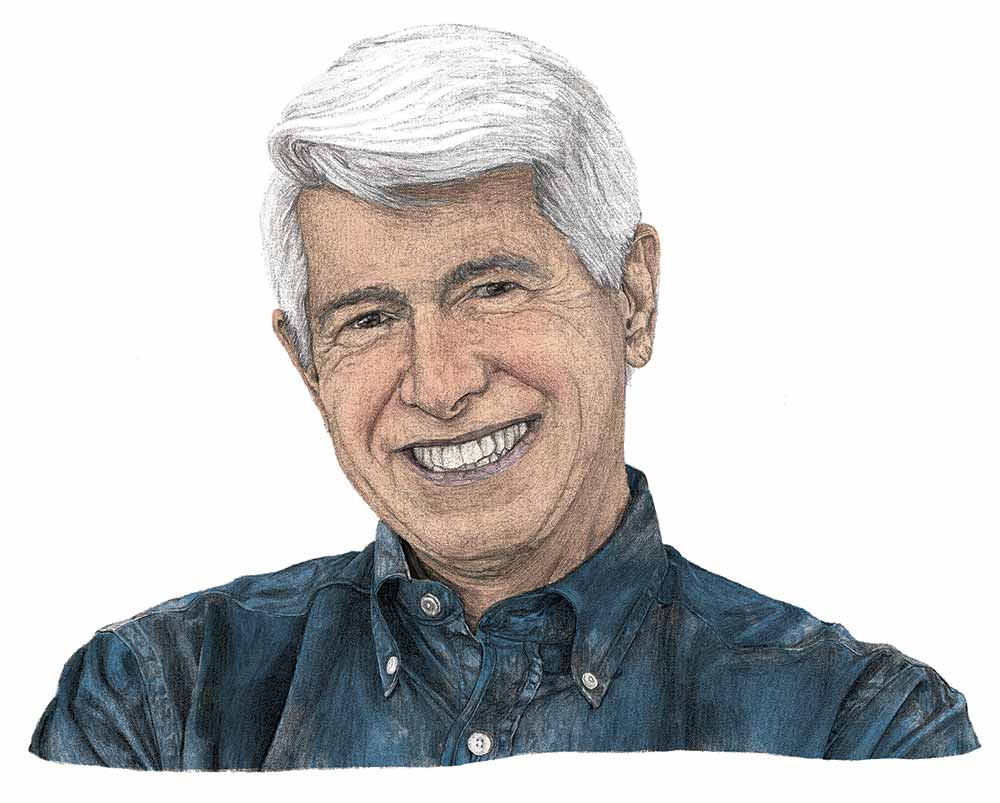
Ana Panaligan / UC Davis
Mark Stetter
School of Veterinary Medicine
Dean Mark Stetter steps in to lead the school through big facilities expansions and its upcoming 75th anniversary in 2023. With a larger teaching hospital on the horizon, more recent additions include a new imaging center with MRIs, CT scans and radiology, and a new advanced small animal orthopedic surgery center. “Ultimately, in the next five years, we will develop a new facility master plan that supports a state-of-the art health complex,” said Stetter, who started in October 2021. Stetter, whose veterinary work has been with zoo and wild animals, previously worked at Walt Disney World before becoming a dean and professor at Colorado State University.
How do you approach the job of dean?
When I was with Disney, I remember Bob Iger, Disney CEO, met with me and a small group of new executives. Somebody in the audience asked him how he prioritized the job of CEO and made decisions. I remember him saying that his job was “to protect and grow the Disney brand.” In many ways, I look at this as solid advice in my world. My job is to protect and grow the incredible legacy and positive impact of the School of Veterinary Medicine.
During my first six months, I spent a lot of time in listening sessions. I really wanted to understand what people are proud about, what are some of the things we’re doing exceptionally well and what are the things we need to work on. It’s been very rewarding to hear the pride people have, meet the exceptional faculty and develop future ideas for opportunities.
“My job is to protect and grow the incredible legacy and positive impact of the School of Veterinary Medicine.”
What are your major priorities now?
Faculty are doing phenomenal things in research, teaching and providing service. I need to ensure that we provide them with the resources so they are able to do the best job possible. That includes making sure our faculty, staff and students love being here. What can we do to make them feel more successful in their roles? What can I do to help with facilities and fundraising? Have we created a vibrant and inclusive work environment?
What are the challenges and opportunities facing your work now?
The veterinary profession needs to improve the diversity in our workforce. In the coming years, I look forward to working with the team to develop new outreach and pipeline programs that can help promote more applications from underrepresented groups to our veterinary programs. The good news is that animals and nature are seen increasingly as a critical component to society. The value that veterinarians provide in all aspects of animal, human and environmental health is now recognized by many.
One of our biggest challenges is that we have a real workforce crisis. Across the profession and at UC Davis, we do not have enough veterinarians and veterinary technicians. The School of Veterinary Medicine will be working toward educating more veterinarians and more veterinary specialists — both a great challenge and opportunity.

